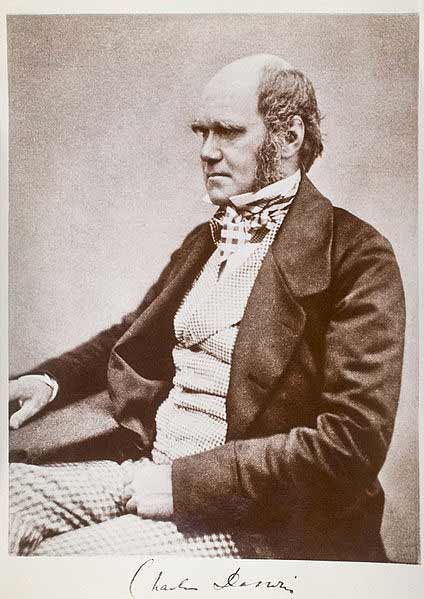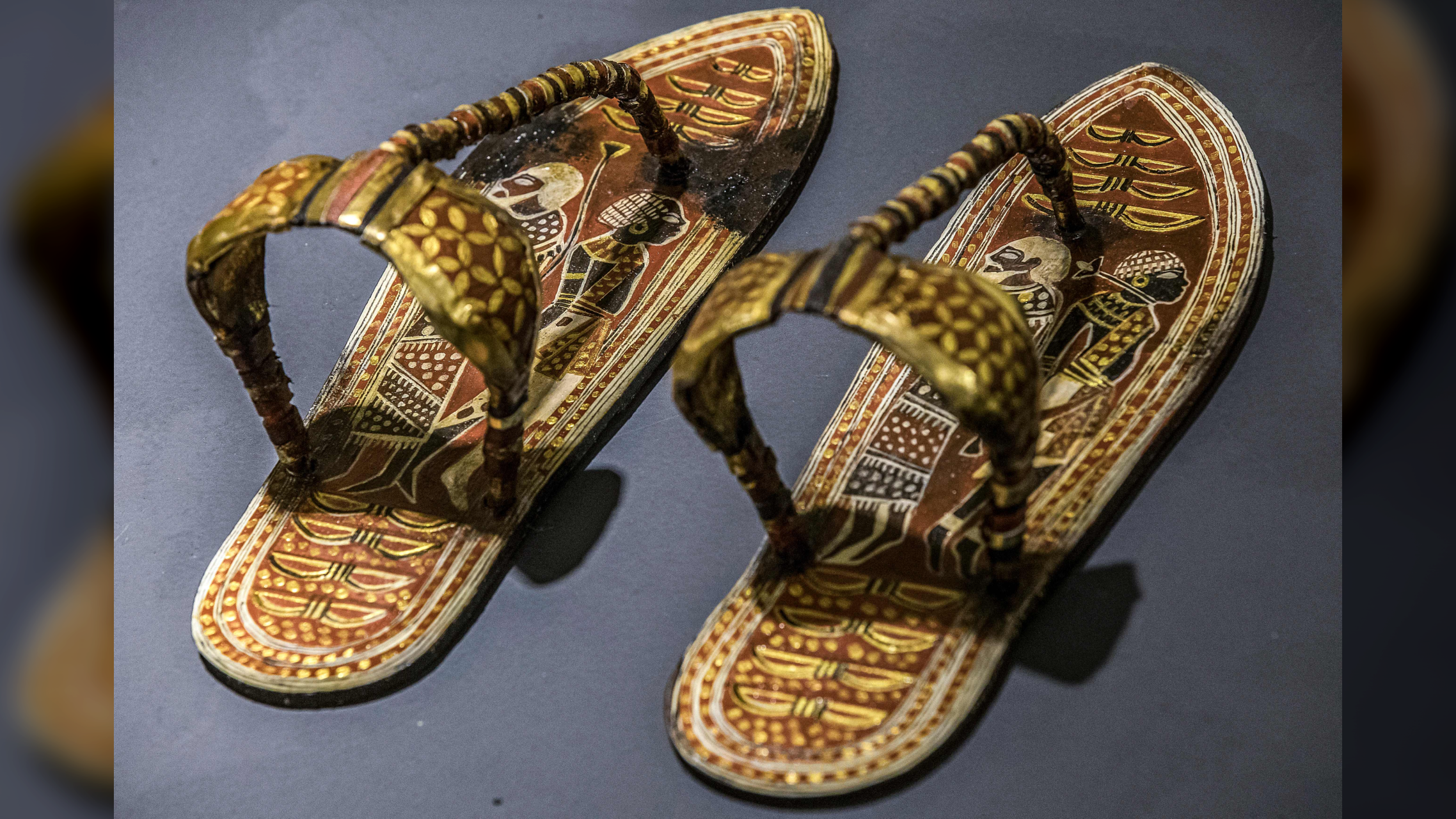The Problem with Evolution Surveys

Get the world’s most fascinating discoveries delivered straight to your inbox.
You are now subscribed
Your newsletter sign-up was successful
Want to add more newsletters?

Delivered Daily
Daily Newsletter
Sign up for the latest discoveries, groundbreaking research and fascinating breakthroughs that impact you and the wider world direct to your inbox.

Once a week
Life's Little Mysteries
Feed your curiosity with an exclusive mystery every week, solved with science and delivered direct to your inbox before it's seen anywhere else.

Once a week
How It Works
Sign up to our free science & technology newsletter for your weekly fix of fascinating articles, quick quizzes, amazing images, and more

Delivered daily
Space.com Newsletter
Breaking space news, the latest updates on rocket launches, skywatching events and more!

Once a month
Watch This Space
Sign up to our monthly entertainment newsletter to keep up with all our coverage of the latest sci-fi and space movies, tv shows, games and books.

Once a week
Night Sky This Week
Discover this week's must-see night sky events, moon phases, and stunning astrophotos. Sign up for our skywatching newsletter and explore the universe with us!
Join the club
Get full access to premium articles, exclusive features and a growing list of member rewards.
In a new survey, a quarter of Britons say they believe Charles Darwin's theory of evolution is "definitely true," with another quarter saying it is "probably true." That left half of the 2,060 people surveyed stating they were either strongly opposed to the theory or confused about it. That's how the survey was presented in The Guardian, with a headline claiming "half of Britons do not believe in evolution."
To those who know evolution to be a solid scientific theory, this poll might seem a glum assessment of public opinion. But let's break that latter half down, as the Guardian subsequently did:
About 10 percent of the survey respondents said they favor creationism, the idea that God created us and everything in seven days sometime roughly 6,000 years ago. Another 12 percent put their stock in intelligent design, an idea (not a theory) stating that life is too complex to not imagine something — presumably God — having a hand in it. "The remainder were unsure, often mixing evolution, intelligent design and creationism together," the Guardian article states.
By my calculation, that means only 22 percent reject evolution outright. That's significantly different than the newspaper's headline. It's also quite different from frequently cited surveys in the United States that apparently have found more than half the population doesn't believe in evolution. Those surveys are typically flawed, too, however, or their results are discussed way out of context. Here's why:
The confluence of evolution and religion is a very tricky topic for pollsters to get at, because many people hold multiple views. Among them:
- Some people agree that evolution is at work in the animal kingdom but don't see it having a role in humans.
- Others are comfortable with the notion that humans have evolved but figure God either set it all in motion or actually keeps a hand in the process all along, with the assumption (by some in this group) that scientists are pretty darn clueless.
- Still others see the theory of evolution as a scientific concept, whereas God is a spiritual concept, and the two have nothing to do with each other.
- At either end of the spectrum, of course, are those who reject evolution and those who reject God.
When pollsters work to take all these shades of thought into account, they can get numbers like this:
In a FASEB poll of likely U.S. voters last year, researchers asked respondents about their views on the evolution of "all living things" and found that 61 percent accepted that "all living things have evolved over time." Of those, 36 percent thought all living things "evolved due to natural processes such as natural selection," and 25 percent thought "a supreme being guided the evolution of living things for the purpose of creating life in the form it exists today."
Get the world’s most fascinating discoveries delivered straight to your inbox.
There's another huge problem that suggests surveys of this nature typically don't delve deeply enough into what people really think: Some people simply know very little about what evolution theory is, and in fact very little about the scientific concepts that underpin the theory, including modern genetics. Their answers to out-of-the-blue questions from a telephone pollster may come with little thought, perhaps rooted in emotion or, in some cases, even wishful thinking. And if they do think, many people may not really know what they think about all this because unlike scientists, educators, activists and LiveScience readers, they don't sit around pondering all this too much.
As an illustration of how little Americans know about basic science, The FASEB study also analyzed the results from a 10-country survey in which adults were tested with 10 true or false statements about basic concepts from genetics. One of the statements was "All plants and animals have DNA." (The correct answer is "yes.") Americans had a median score of 4.
Imagine framing a poll question this way: "When over a few generations a virus mutates to resist the effects of an antibiotic, thereby becoming deadly to humans, that's an example of evolution. Do you believe in evolution?"
All this matters because the theory of evolution is one of the most well-supported theories of science, and scientists and most science teachers think it should be taught in science class without religious ideas such as creationism and intelligent design. (Intelligent design purports to simply offer an alternative way of looking at the theory of evolution, but in reality it is a sneaky means by its promoters to bring creationism into science classrooms, critics say.)
If evolution is put side-by-side with creationism or intelligent design, the thinking goes, then teachers do students a disservice by suggesting it's all science, thereby failing to instill proper critical-thinking skills in the students.
The British poll was done by the polling agency ComRes on behalf of the Theos think tank.
Footnote: You're going to be hearing a lot about Charles Darwin this year, because the father of the theory of evolution would be 200 years old. There will be worthwhile discoveries regarding evolution that happen to coincide with the hoopla, and then there will be feature stories written to sell newspapers and drive web traffic, many of them rooted in well-meaning efforts by scientific organizations and institutions aiming to battle those who would tear evolution down. Thought you ought to know.
- Evolution News and Information
Robert Roy Britt is the Editorial Director of Imaginova. In this column, The Water Cooler, he takes a daily look at what people are talking about in the world of science and beyond.
Robert is an independent health and science journalist and writer based in Phoenix, Arizona. He is a former editor-in-chief of Live Science with over 20 years of experience as a reporter and editor. He has worked on websites such as Space.com and Tom's Guide, and is a contributor on Medium, covering how we age and how to optimize the mind and body through time. He has a journalism degree from Humboldt State University in California.
 Live Science Plus
Live Science Plus











